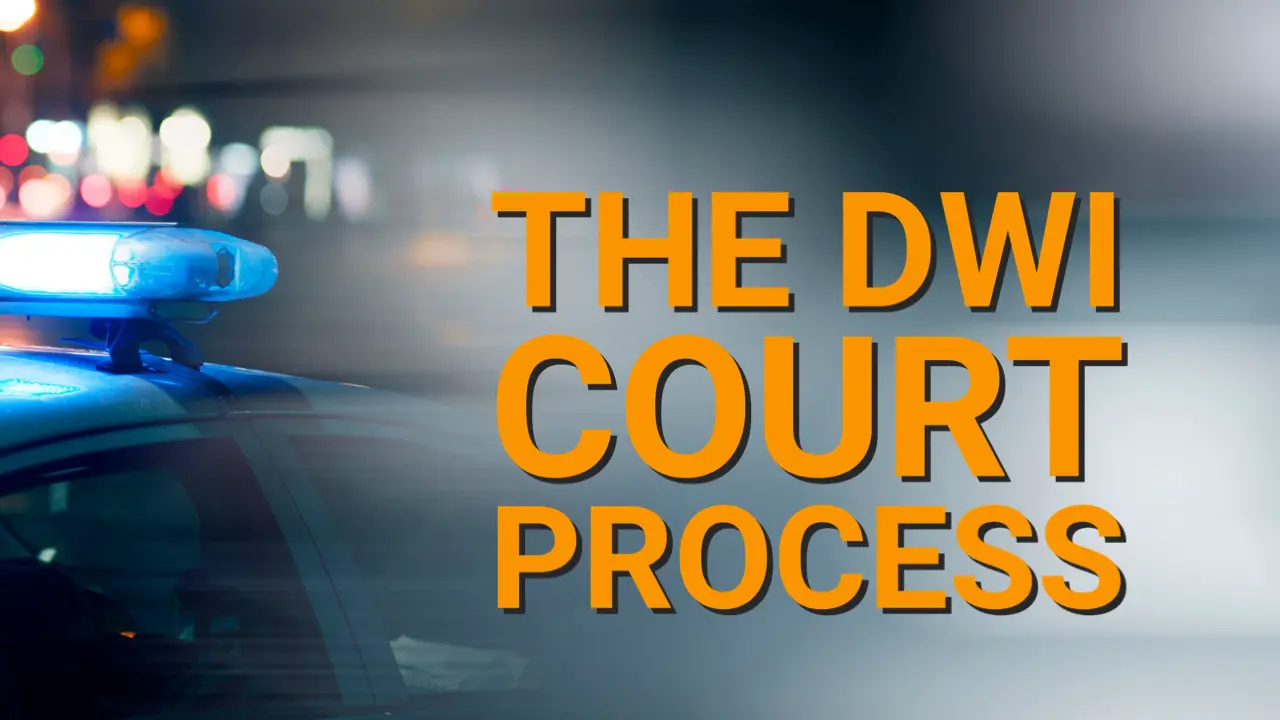
My Dallas Criminal Lawyer’s key takeaways on the DWI court process in Texas:
- In most jurisdictions, magistration takes place in 24 – 48 hours.
- Texas law requires installation of an Ignition Interlock Device as a condition of bond when BAC >= 0.15, the arrest is for a second or subsequent DWI, or the alleged DWI involves a child passenger.
- ALR hearings typically take place before the DWI criminal case is filed in a county or district court.
- An Occupational Drivers License will allow an arrestee to drive lawfully after an ALR suspension.
- Article 39.14 of the Texas Code of Criminal Procedure requires prosecutors to disclose all evidence to Defense counsel once the DWI is filed but not before.
- Punishment for DWIs, especially misdemeanor DWIs, typically involves probation.
- Some DWI arrests can be expunged or sealed with a nondisclosure.
How Does the DWI Court Process Begin?
After police arrest someone for driving while intoxicated, Texas law requires law enforcement to present the arrestee before a magistrate within 48 hours. During magistration, the magistrate will set the bail amount and any conditions the arrestee must abide by upon posting bond. Magistration does require an arrestee to enter a plea.
What Is Bail in a DWI Case?
Bail is the full amount of money someone must pay to get out of jail. Magistrates set bail to secure the arrestee’s appearance in court to face criminal charges. If an defendant fails to appear in court, the judge can order the bond forfeited, meaning the money paid to secure the arrestee’s release goes to the county, and a new warrant goes out for the defendant’s arrest.
Magistrate’s have broad discretion over the amount of bail and how that bail can be paid. When a bail bondsman pays the bail money to secure an arrestee’s release from jail, Texas courts refer to the payment as a surety bond. The bail bondsman takes responsibility that the defendant will appear in court. When the arrestee or someone the arrestee knows pays the full bail amount without the use of a bail bondsman, it is called a cash bond. Once a DWI case reaches its conclusion, the clerk’s office will return the cash bond to the person who paid the cash bond. For many first-time offenders, magistrates will set a personal recognizance (“PR”) bond, which trusts the defendant to appear in court without making any payment to secure release from jail.
What Are Bond Conditions in a DWI Case?
Bond conditions are rules an arrestee must follow upon release from jail. These conditions remain effective until the DWI case reaches its conclusion. The most common bond conditions triggered by an arrested for driving while intoxicated include:
- Do not commit any new offenses in Texas or any other state in the United States
- Do not violate any federal laws
- Do not use any illegal substances
- Appear at all required court appearances
- Update contact information with the clerk of the court
When BAC >= 0.15, the alleged DWI involves a child passenger, or when a person is arrested for a second or subsequent DWI, Texas law requires the magistrate order an arrestee to install an Ignition Interlock Device on any personal vehicle the arrestee operates. When police arrest someone for a first DWI and the individual provides a specimen of blood for alcohol analysis, magistrates typically wait to require an Interlock until the case is filed as a DWI with BAC >= 0.15.
DWI Court Process After Jail Release
An arrest for driving while intoxicated triggers a separate civil matter knows as an Administrative License Revocation (“ALR”). Texas law requires law enforcement to read and provide a copy of a document known as a Statutory Warning to DWI arrestees. This warning contains information about how to request an ALR hearing in order to fight the license suspension. Click here for more information about ALR hearings. ALR hearings usually occur before the DWI criminal case has its first court appearance.
In the event that the Texas Department of Public Safety issues an ALR suspension, a DWI arrestee will have a period of time during which the arrestee cannot legally operate a motor vehicle without an Occupational Drivers License. Common ALR suspension durations occur as follows:
- First DWI, consensual breath or blood specimen = 90-day ALR suspension
- First DWI, refuse to provide breath or blood specimen = 180-day ALR suspension
- Subsequent DWI within ten years of previous, consensual breath or blood specimen = 1-year ALR suspension
- Subsequent DWI within ten years of previous, refuse to provide breath or blood specimen = 2-year ALR suspension
Click here for more information about obtaining an Occupational Drivers License.
Going to Court for Your DWI
At some point after the arresting police agency receives an arrestee’s blood toxicology report from the forensic lab, the agency will submit the case to the District Attorney’s Office in the county where the arrest occurred. For Class B and Class A Misdemeanor DWI cases, the District Attorney’s Office has two years from the offense date to file the case. In felony Driving While Intoxicated cases, prosecutors have three years from the offense date to present the case to the grand jury for indictment.
Once prosecutors file the DWI case, the county or district clerk’s office will assign the case to a court and give it a unique cause number. The clerk’s office will then mail a notice to appear to the defendant at the address the clerk’s office has on file. Make sure the county or district clerk has your correct contact information because failure to appear at a court date may trigger the forfeiture of your bond. If you have hired a DWI lawyer prior to your first appearance, your lawyer will also receive a notice to appear.
DWI Court Process – First Appearance
The notice to appear tells Driving While Intoxicated defendants where and when to appear in court. Defendants will check in with the court bailiff and have a seat to wait for their attorneys. For defendants who have not hired attorneys prior to the first appearance, the court will provide a reset to hire a DWI lawyer, the opportunity to apply for a court-appointed lawyer if the DWI defendant is indigent, or defendants may choose to represent themselves.
DWI lawyers meet with prosecutors in a docket room to discuss your case. At the first appearance, prosecutors will provide access to discovery, and they may communicate their initial plea offer. Your attorney will get a new court date from the court administrator, discuss the initial plea offer with you, and you will be free to leave.
What if BAC >= 0.15?
In the event BAC lab results come back showing an alcohol concentration of 0.15 or greater, the court will provide your attorney an amended bond condition form. These amended bond conditions require defendants to install an ignition interlock device on their personal vehicle. If the court issues that amended bond condition, your attorney will review the new bond conditions with you, and you will sign the amended bond condition document. Most courts will require you to report to a pretrial supervision office the same day as your first appearance if the court modifies bond conditions to include the ignition interlock device.
In my experience, many clients, especially those who have no experience with the criminal justice system, feel stress and anxiety over their first appearance. The first DWI court date, however, is truly an easy experience. All you have to do is arrive on time and check in with the court’s bailiff. You may have to sign a form and meet with a supervision officer about installing an ignition interlock if your BAC is >= 0.15. But you will not say anything to the judge, and nothing critical will happen with your case that day.
DWI Court Process – Announcement Settings
Most courts set intermediate court dates in between the first appearance and the plea setting. Most courts refer to these intermediate court settings as announcements. Your court may or may not require you to appear at announcement settings. Either way, your attorney will appear on your behalf.
At the announcement settings, your attorney will talk to the prosecutors about your case. Ideally, your attorney will have reviewed discovery between the first appearance and the first announcement. If there are certain pieces of evidence that prosecutors failed to disclose, your DWI lawyer will raise the issue to the prosecutor and request that the prosecutor track down the missing evidence. Additionally, your attorney will engage the prosecutor in plea negotiations, working to improve the terms of the plea offer prosecutors made at the first appearance.
Your attorney will strategically reveal weaknesses in the prosecutor’s case and highlight positive things about you while negotiating with the prosecutor. There may be multiple announcement settings where your attorney negotiates with the prosecutor. For courts that do not utilize announcement settings, your attorney will negotiate with the prosecutor by phone and email.
DWI Court Process – Plea Setting
The court will require you and your attorney to appear at all plea settings. At a plea setting, the court wants you to either formally enter into a plea agreement with the prosecution or set the case for trial. Your attorney will review the latest plea offer terms with you and discuss the benefits and drawbacks of accepting the state’s offer. At the Justin Barrett Wilson Law Firm, we endeavor to make sure our clients have as much education and information as possible so that they can make informed decisions when determining whether to accept a plea offer for fight a case for trial.
DWI Plea Process
The choice whether to plead guilty / no-contest or set the case for trial is completely your decision. We will make sure you understand all the terms and conditions of any plea offer. We will evaluate the costs and benefits of going to trial. And we will explain our strategy to defend you at trial as well as our anticipated outcome.
If you choose to enter into a plea agreement, you will review and sign the plea paperwork with your attorney. You and your attorney together will go in front of the judge and execute your plea. After entering your plea, you will sign a judgment form, make payment arrangements for any fines and court costs, and head to the probation office if you have accepted community supervision. If you have accepted a plea offer for confinement, you will process with the county jail in accordance with your plea paperwork.
What if I Set My DWI Case for Trial?
Driving While Intoxicated cases may be tried to a jury (jury trial) or the judge (bench trial). The court will provide a pretrial date and a trial date. You must appear at your pretrial court date. At the pretrial hearing, the judge will hear any matters that need addressing before commencement of the trial. Pretrial matters can include motions for continuance if we need to reschedule the trial date, motions to suppress if police gathered certain evidence unlawfully, and motions in limine to name a few. If the court reschedules your trial date, you will not need to appear again until the next pretrial setting. If your trial will move forward as scheduled, you will need to appear at the date and time determined by the court.
How Long Does a DWI Trial Last?
DWI trials typically last one or two days. To be safe, plan on taking one day off of work for bench trials and two days off for jury trials. It is important to dress professionally but not formally. You want to make a positive impression on the jury or judge but not look inauthentic. I recommend defendants dress business casual. You don’t need to be in a full suit like your DWI lawyer, but you don’t want to appear casual or sloppy either.
Trial Verdict
At the trial’s conclusion, the jury or judge will pronounce the verdict. A ‘Not-Guilty’ verdict means you are immediately eligible to expunge the arrest and any administrative license revocation from your record. A ‘Guilty’ verdict means the case will proceed to the punishment phase. Punishment terms after trial tend to be more severe than the prosecutor’s last plea offer before trial, but that is not always the case. Depending on the circumstances of your case and criminal history, you may be eligible for a nondisclosure to seal record of your DWI even if the jury or judge finds your guilty.
The DWI Court Process is Complex
But it does not have to be intimidating. The experienced DWI lawyers at the Justin Barrett Wilson Law Firm will fight for you from a position of strength. We will educate you and guide you through the DWI court process so that you can make informed decisions at every turn. And we endeavor to provide hope for a future where the DWI case has been expunged or sealed through a nondisclosure. Schedule your complimentary DWI consultation with us today.


